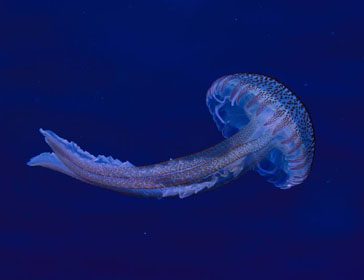Species at Risk: Jellyfish
 Scientists do not know what could be the reason of increased jellyfish population. The increase of sea water temperature due to climate change, the reduction in the number of predators due to over-fishing and the increase in nutrients due to contamination of the coasts can be some of the reasons.
Scientists do not know what could be the reason of increased jellyfish population. The increase of sea water temperature due to climate change, the reduction in the number of predators due to over-fishing and the increase in nutrients due to contamination of the coasts can be some of the reasons.
The superabundance of jellyfish does not happen by chance but rather it is a symptom of the fact that the characteristics of the water have changed due to variations in the oceanographic parameters (temperature, salinity).
The causes of the existence of great masses of jellyfish are not local, as has been verified by researchers from the Mediterranean Institute of Advanced Studies (IMEDEA, CSIC-UIB), but rather it is a result of effects of the currents. The seasonal conditions have not been identified as determining the appearance of these species in coastal waters as, in campaigns carried out in winter, the presence of jellyfish has also been identified both in oceanic and in coastal waters.
The most decisive factor is the effect of marine currents. Another aspect to bear in mind is the influence of over-fishing as certain types of fishing incidentally catch the predators of jellyfish: like the loggerhead sea turtle.
For more information on jellyfish, click here.

